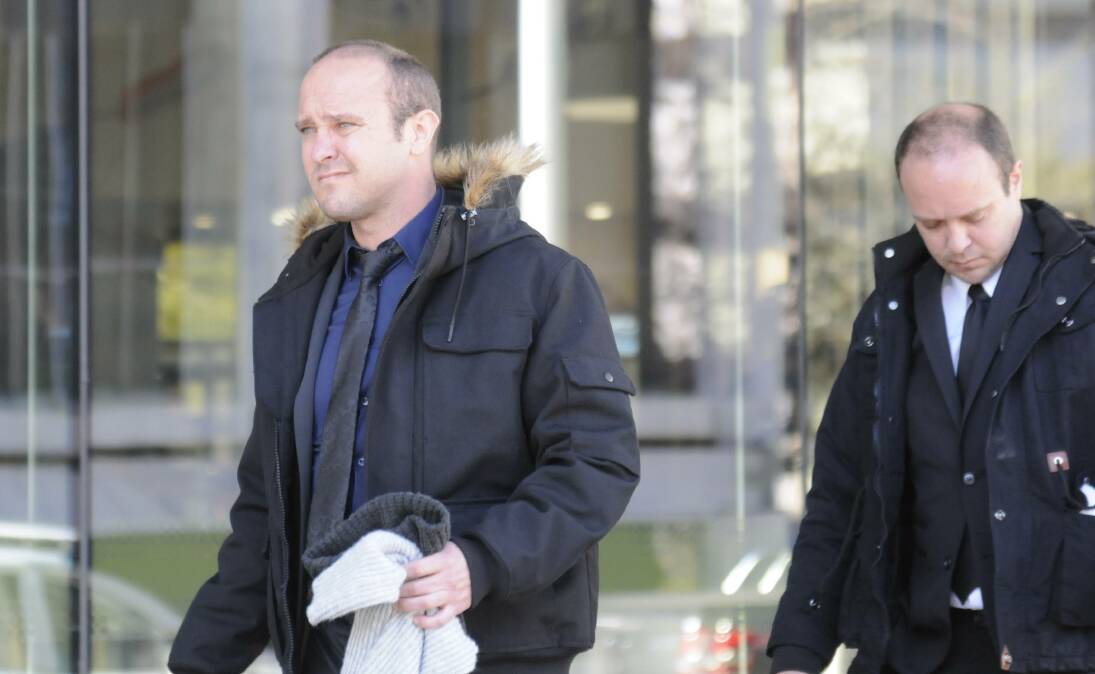
The case against twin brothers who successfully appealed guilty verdicts for allegedly using hidden cameras to spy on their female tenants will be delayed as two further appeals are set to be lodged.
In September, Justice Chrissa Loukas-Karlsson upheld an ACT Supreme Court appeal brought by Joshua Rod Tiffen and Kenan Lee Tiffen, who were previously found guilty of three counts each of capturing visual data in an indecent invasion of privacy.
The judge set aside the six guilty verdicts and remitted the charges to the lower court.
Lawyer for the brothers, Tom Taylor, told the ACT Magistrates Court on Monday that the defence had filed an appeal challenging some of Justice Loukas-Karlsson's orders, namely rulings regarding evidence.
The prosecution is expected to file a cross-appeal.
Based on the current rulings, a prosecutor said the Office of the Director of Public Prosecutions would continue with the case against the Tiffens.
Magistrate Glenn Theakston said he was "comfortable pausing at this stage noting those two appeals".
Mr Theakston stated it would be "more complicated" for the court to proceed without the other matters being finalised.
The prosecutor indicated it could be a lengthy delay with the Court of Appeal currently taking anywhere between two to 12 months for a decision.
Mr Taylor also indicated his intention to file an application for costs.
The magistrate urged the parties to come to an agreement on costs, "otherwise time will be taken up in court arguing about it".
"A shortcut would be to agree on an amount as much as you possibly can," Mr Theakston said.
"If costs are to be paid I understand why the defendants would want that sooner rather than later."
Mr Theakston had previously found former Australian Federal Police officer Joshua Tiffen and electrician Kenan Tiffen, 45, guilty.
The brothers later appealed against the verdicts.
They argued Mr Theakston had been wrong to admit evidence found on two electronic devices, including a laptop that belonged to Joshua Tiffen.
The evidence found on the computer was obtained unlawfully because police examined it outside the expiration of a 30-day time limit.
Mr Theakston found Detective Leading Senior Constable Trent Madders "deliberately attempted to cover up that breach" by redacting an entry in his notebook and falsely denying that he had been told the device was examined out of time.
Notwithstanding this, he decided the evidence found on the computer could still be considered when the charges reached a hearing.
In the Supreme Court in September, Justice Loukas-Karlsson found this was a "significant" error.
"In this case, an attempt was made to conceal an impropriety from a court," the judge said.
"Lawlessness on the part of police encourages lawlessness in our society.
"It does not aid the course of justice for police to do the wrong thing."
Justice Loukas-Karlsson ultimately set aside the six guilty verdicts and remitted the matter to the Magistrates Court.
The Magistrate's Court case was adjourned until June 24, with the Tiffen brothers excused from appearing if legally represented.
Leading Senior Constable Madders has previously addressed the adverse findings Mr Theakston made about his conduct, saying he respected the magistrate's decision but disagreed with the comments.
"I believe that I did not fully articulate my reasoning around a redaction, and I did not answer questions well under cross-examination," he wrote in a statement.
"I maintain that I did not attempt to cover up a breach of the legislation."
The detective made those comments in a statement to a recent board of inquiry that examined the unrelated investigation of rape allegations made by former Liberal Party staffer Brittany Higgins.







